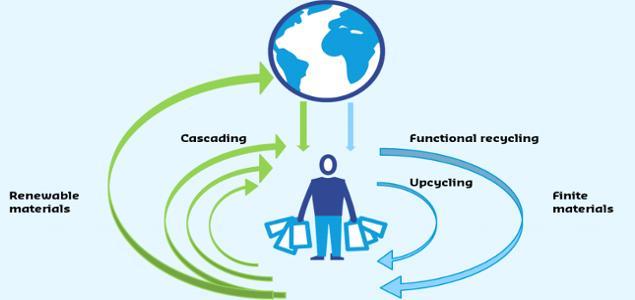Study Shows Circular Economy Should Be ‘Key Instrument’ in Climate Strategy

This month, countries are beginning to formally ratify commitments under the Paris Climate Agreement, and Environment Ministers from across Europe met to finalize the approval of the European Commission’s Circular Economy Action Plan. Both represent important steps forward in environmental policy, however, Dutch research institute CE Delft and Netherlands Institute for Sustainable Packaging (KIDV) suggest that thecircular economy has been overlooked in climate policy as an effective means of emissions reduction.
“The European Commission has recognised the potential of the circular economy model to maintain and improve [the European Union (EU)]’s competitiveness as an economic entity and at the same time reduce its emissions. However, in the climate policies of the EU, as well as most of its member states, no reference is made to circular economy policies as a means to reduce European greenhouse gas emissions.” the organizations note, adding that current policies focus primarily on energy and transport.
“Major potential additional benefits of policies focused on materials and the circular economy are thereby generally being overlooked.”
According to The Circular Economy as a Key Instrument for Reducing Climate Change, a new study conducted by CE Delft and commissioned by KIDV, demonstrates how shifting to a more circular economy could reduce greenhouse gas (GHG) emissions, with a specific focus on municipal solid waste (MSW). The researchers calculated that recycling two-thirds of MSW can reduce annual GHG emissions by 4 percent in the EU, or by 6 percent globally.